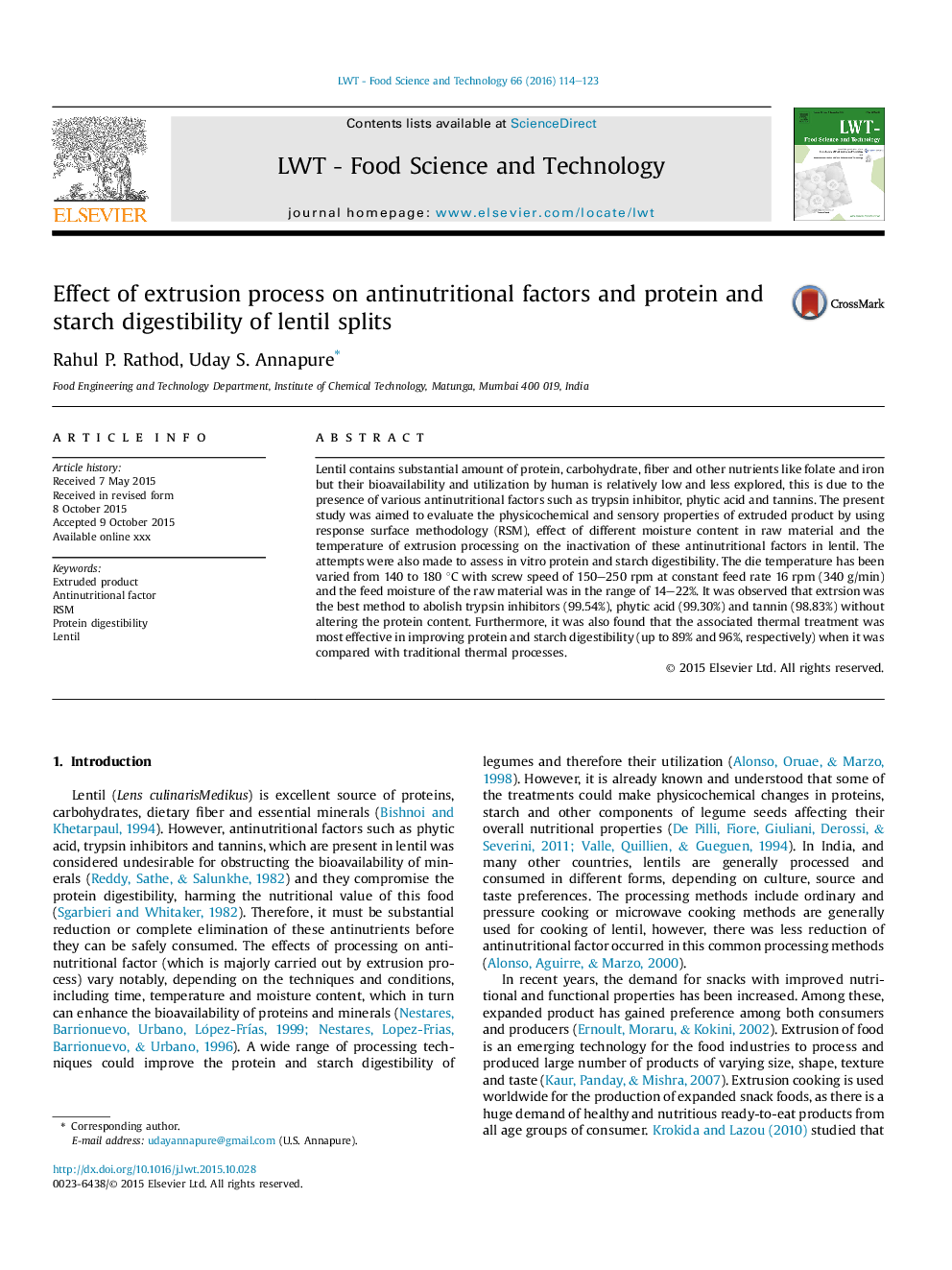| Article ID | Journal | Published Year | Pages | File Type |
|---|---|---|---|---|
| 6400889 | LWT - Food Science and Technology | 2016 | 10 Pages |
Abstract
Lentil contains substantial amount of protein, carbohydrate, fiber and other nutrients like folate and iron but their bioavailability and utilization by human is relatively low and less explored, this is due to the presence of various antinutritional factors such as trypsin inhibitor, phytic acid and tannins. The present study was aimed to evaluate the physicochemical and sensory properties of extruded product by using response surface methodology (RSM), effect of different moisture content in raw material and the temperature of extrusion processing on the inactivation of these antinutritional factors in lentil. The attempts were also made to assess in vitro protein and starch digestibility. The die temperature has been varied from 140 to 180 °C with screw speed of 150-250 rpm at constant feed rate 16 rpm (340 g/min) and the feed moisture of the raw material was in the range of 14-22%. It was observed that extrsion was the best method to abolish trypsin inhibitors (99.54%), phytic acid (99.30%) and tannin (98.83%) without altering the protein content. Furthermore, it was also found that the associated thermal treatment was most effective in improving protein and starch digestibility (up to 89% and 96%, respectively) when it was compared with traditional thermal processes.
Related Topics
Life Sciences
Agricultural and Biological Sciences
Food Science
Authors
Rahul P. Rathod, Uday S. Annapure,
